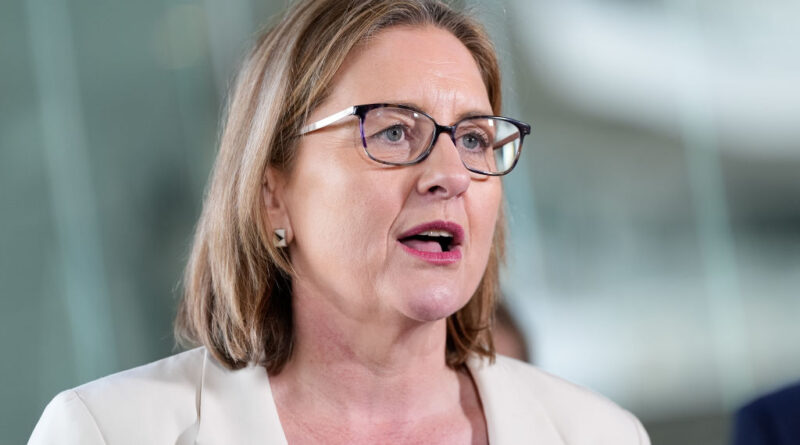The state has unveiled a plan to boost the economy after being named least business-friendly state.
Experts say the Victorian government’s Economic Growth Statement—which lays out actions for a stronger economy—subtly acknowledges the state’s “image problem” but stops short of tackling deeper economic challenges.
Released a week after Victoria was ranked the least business-friendly state in Australia, the plan is a collaboration with industry.
The plan prioritises 5 key sectors: advanced manufacturing and defense, health technologies, the circular economy, digital technologies, and agribusiness.
“This Economic Growth Statement is aimed squarely at preparing our economy, people and businesses to grab the opportunities of the future—with both hands,” said Premier Jacinta Allan on Dec. 10.
While the Treasurer’s call for honesty about challenges is welcomed, critics argue that the statement lacks substance to address systemic issues in Victoria’s economy.
“The statement includes a number of commendable initiatives, albeit that most of them involve additional government spending and are relatively small,” Saul Eslake, an independent economist, told The Epoch Times.
Priority Sectors and Regulatory Reform
In addition to choosing 5 priority sectors as key drivers for future growth, the government has pledged to reduce regulatory burden, slashing red tape by $500 million over five years, and cutting the number of regulators from 37 to 18 by 2030.
The Business Council of Australia (BCA) welcomed these initiatives. Bran Black, BCA’s CEO described the reforms as “a step in the right direction” but emphasised the need for effective implementation.
He lauded the streamlining of planning systems for sectors like renewable energy and faster rezoning of commercial land.
However, Black stressed that reducing Victoria’s high payroll tax and addressing regulatory licensing burdens were critical for long-term business growth.
“Victorian businesses are looking for improvements with respect to many fundamental regulatory settings that hold them back and restrict economic growth,” Black said.
Experts warn of Victoria’s declining productivity growth
Eslake criticised the government’s decade-long delay in recognising the need for better engagement with businesses.
“Labour productivity growth has been slower in Victoria compared to other states,” he added, indicating that some investments may have been misdirected.
Eslake pointed out that while Victoria’s gross state product (GSP) grew faster than any other state or territory over the past decade, much of this growth was fueled by population increases.
Victoria’s population grew by 18.4 percent, compared to a national average of 15.7 percent. However, per capita economic growth lagged behind Tasmania, New South Wales, and South Australia, raising questions about the quality of the economic gains.
Financial Sustainability Under Scrutiny
Despite these initiatives, Eslake noted that the statement fails to address the “increasingly parlous condition” of Victoria’s state finances.
With no clear plan to restore financial sustainability, concerns remain about the government’s ability to balance economic growth with fiscal responsibility.
“Nor does it give any indication as to what actions (if any) the government might be contemplating to put Victoria’s finances on a more sustainable trajectory,” he said.
Steps Towards Business Collaboration
The government also announced the formation of the Premier’s Business Council.
Led by former Australia Post CEO Ahmed Fahour, the goal of the council is to strengthen ties with industry leaders.
Premier Allan highlighted Melbourne’s appeal as a “magnet for business investment” during the plan’s unveiling.
However, critics argue that realising the ambitious goals will require not just announcements but tangible action to rebuild confidence and drive meaningful change.
“Establishing a Business Council is worth doing if the government is prepared to listen to the advice offered by its members,” said Eslake.
Victorian Chamber Applauds Collaborative Economic Framework
The Victorian Chamber of Commerce and Industry has welcomed the Economic Growth Statement.
It views it as a reflection of its long-standing advocacy efforts through initiatives like the Victoria Summit 2021 and the Cost and Ease of Doing Business in Victoria report.
Victorian Chamber CEO Paul Guerra also highlighted the importance of this partnership, stating that “the Statement is a significant step towards driving further growth and investment, providing clarity on priority areas and business engagement.”
He noted that while the government has set the framework, the private sector will play the central role in driving the growth needed to secure Victoria’s economic future.
Guerra commended the Treasurer for maintaining open lines of communication with the business community, a commitment initiated at the State Budget event.
“Victoria must be both open for—and to—business,” he concluded.
Source link



